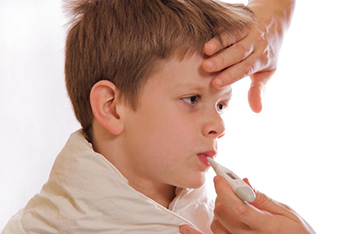
Influenza, Flu vaccines, and Kids by Colleen Kraft, M.D.
 According to the CDC, 180 children under 18 years of age died from influenza, or the flu. More than 80% of those children did not receive a flu vaccine. Flu can be deadly, even to healthy children. Families have shared their experiences of their children being victims of influenza at www.familiesfightingflu.org. Immunization against influenza is one of the most effective strategies toward protecting you and your child from this disease. Common questions and answers are below:
According to the CDC, 180 children under 18 years of age died from influenza, or the flu. More than 80% of those children did not receive a flu vaccine. Flu can be deadly, even to healthy children. Families have shared their experiences of their children being victims of influenza at www.familiesfightingflu.org. Immunization against influenza is one of the most effective strategies toward protecting you and your child from this disease. Common questions and answers are below:
Q: Why is it important for all children aged 6 months and up to get vaccinated?
A: Children, particularly those under age 5, are subject to potentially very severe complications from influenza disease; some of those children are hospitalized. Within that group, children under 2 are especially prone to complications. For everyone aged 6 months and up, the annual flu vaccine is the best way that we have available to protect against complications.
 Q: Is it really necessary to vaccinate my child this year if she received a flu shot last year?
Q: Is it really necessary to vaccinate my child this year if she received a flu shot last year?
A: The flu vaccine has three or four different vaccine virus strains in it. In a typical season, at least one of those strains will change. Also, we know from a number of studies that the antibody response to the vaccine tends to decline over time, so that’s why it’s important to get a flu vaccine every year.
Q: How effective is the vaccine at preventing flu?
A: It depends on how well the vaccine matches the flu strains that are circulating. The vaccine strains have to be chosen well in advance of the flu season starting, and in years when there’s a good match, it’s likely to work better.It also depends upon a person’s age and health status.
Q: Are there any reasons why a child who’s old enough should not get the flu vaccine?
A: The main contraindication for the flu vaccine is a severe allergic reaction to anything that is in the flu vaccine.
Q: How can parents protect babies younger than 6 months from the flu?
A: Since babies under 6 months can’t get a flu shot, it’s important to do everything you can to protect your child. The best way to protect those children is getting the flu vaccine yourself. The people who are in close contact with babies and take care of them should do their best not to get sick themselves, so they don’t spread the flu to the baby.
Q: Does a flu shot given to a pregnant woman protect the newborn baby later on?
A: There have been studies showing that newborns do have some protection from mothers’ vaccinations.
Q: How many doses of the flu vaccine does my child need, and how long should we wait between doses?
A: Children from 6 months to 8 years getting the flu vaccine for the first time need to get two doses in order to maximize having a good immune response. If it’s your child’s first time, she still needs two doses. Or if you don’t know what your child got before — if it’s not documented anywhere — get two doses. The doses should be at least four weeks apart.
Q: Which children are eligible for the nasal spray flu vaccine?
A: The nasal spray is an option for healthy children over age 2 who don’t have asthma, chronic medical conditions that cause a suppression of the immune response, or other medical problems that might place them at increased risk for influenza complications. Sometimes doctors’ practices run out of it, or they’re not able to stock it every year.
Q: How can a parent prepare a child for the flu shot, particularly if the child is afraid of injections?
A: For children who are fearful of an injection, the nasal spray flu vaccine is an option. Otherwise, it’s just like any other vaccination, and it may help if the pediatrician has good distraction techniques.
Q: What are the typical reactions to the flu shot?
A: Generally, the most common side effects from the flu shot are local symptoms around the site where the shot was given — things like soreness, redness, or swelling. Children who get the nasal spray vaccine may have a runny nose, congestion, or cough. After either vaccine, some children may have other symptoms, such as fever or aches. These effects are usually mild and last only one to two days. Severe reactions are rare, but parents could look for a high fever, behavior changes, or signs of a severe allergic reaction, like trouble breathing or hives.
Q: Will the flu shot be painful for my child?
A: There is some pain but it usually goes away fast. And it’s one of the best things you can do to help prevent influenza. There are a lot of things that can impact what your experience is, so it’s hard to say. For example, there can be a lot of variability depending on the technique of the person giving the shot.
The information provided is for general interest only and should not be misconstrued as a diagnosis, prognosis or treatment recommendation. This information does not in any way constitute the practice of medicine, or any other health care profession. Readers are directed to consult their health care provider regarding their specific health situation. Marque Medical is not liable for any action taken by a reader based upon this information.
